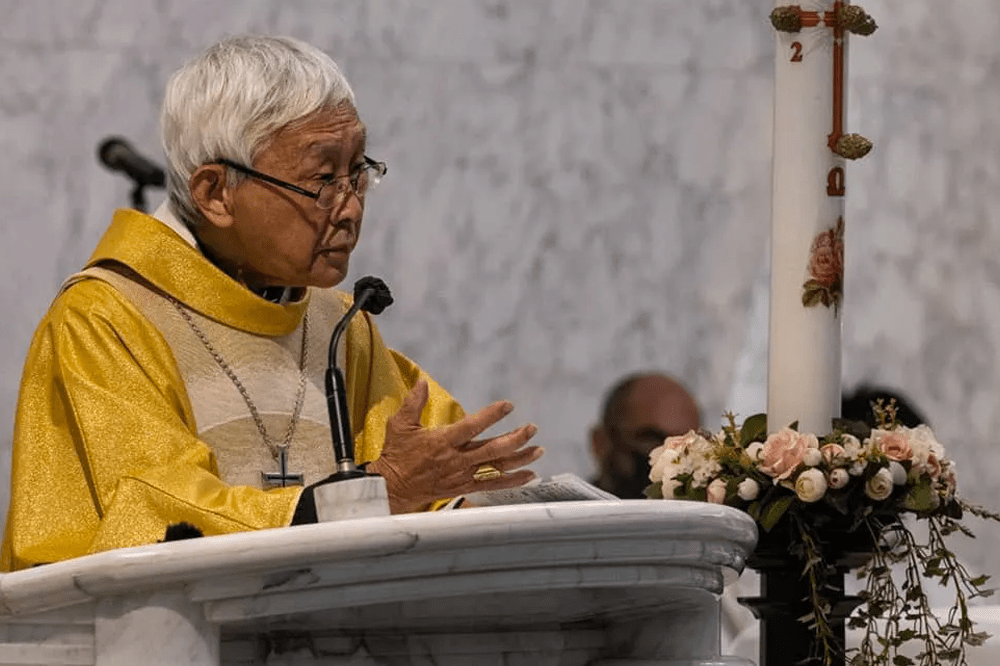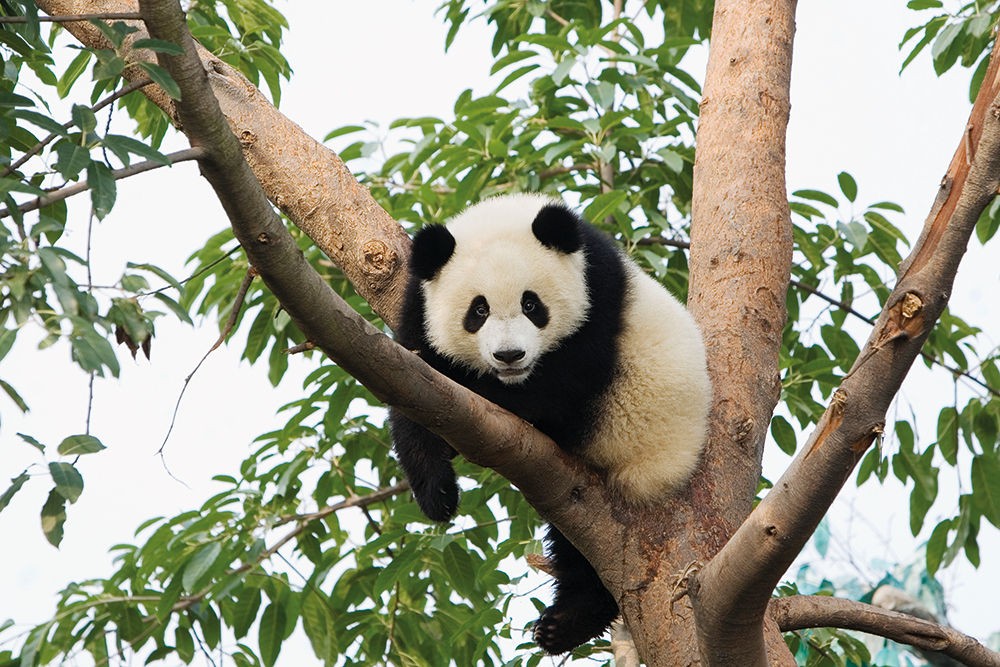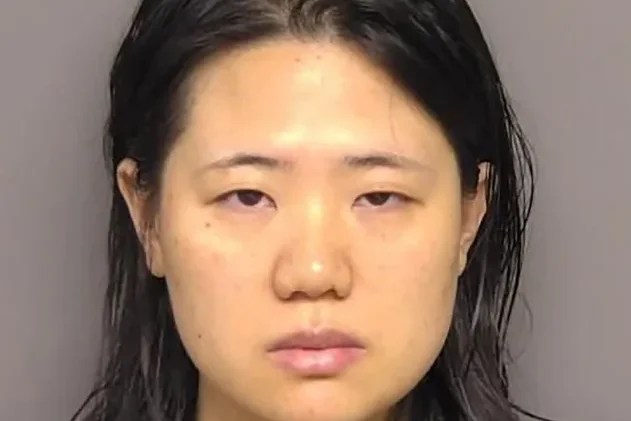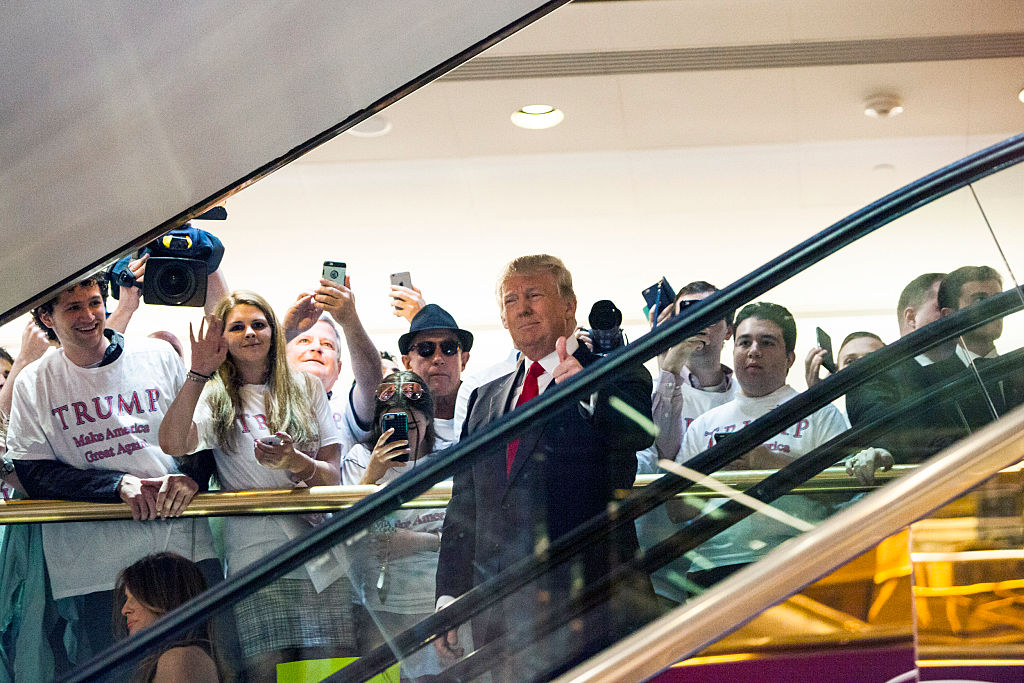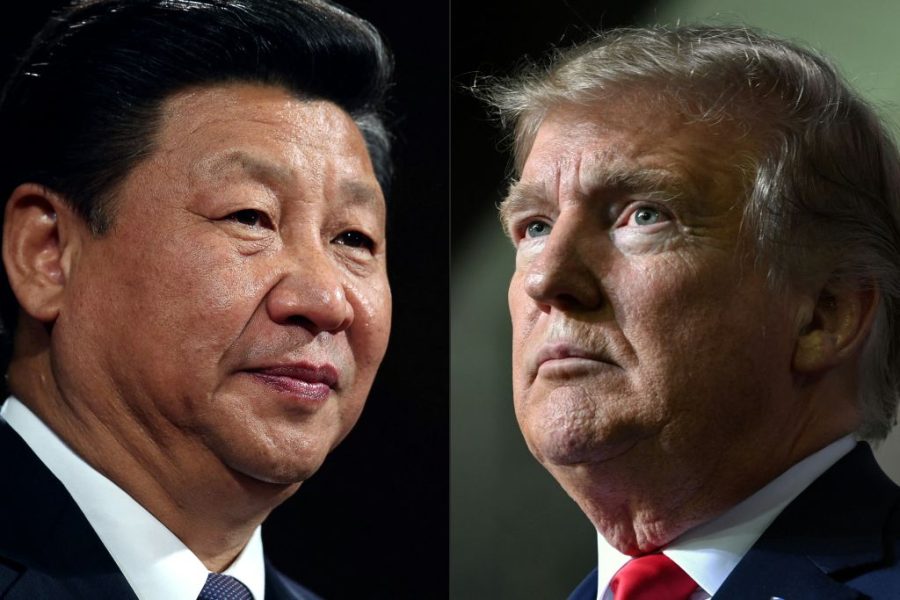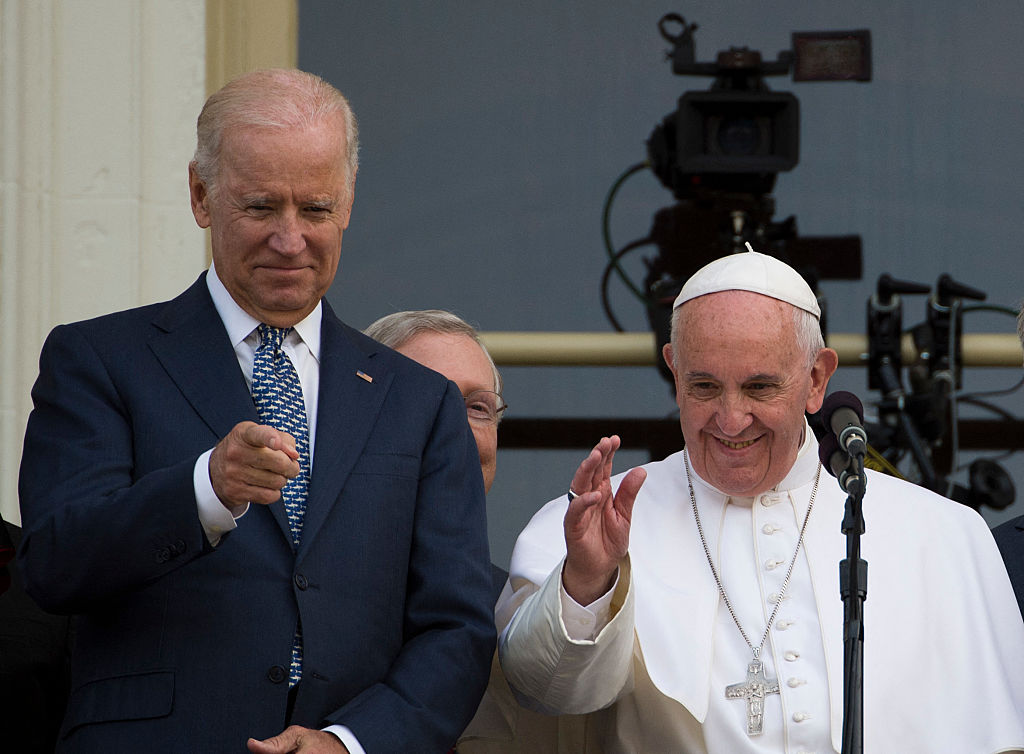This week Cardinal Joseph Zen Ze-kiun, the ninety-year-old retired bishop of Hong Kong, went on trial in Kowloon Magistrates Court as a punishment for supporting pro-democracy demonstrators during the mass protests in Hong Kong. He was arrested in May and, along with four other trustees of a humanitarian relief fund, charged with failing to register the organization properly.
The chances that he will be acquitted are slim, to put it mildly. This is Beijing’s way of confirming that Hong Kong is now a police state. Even a frail and saintly cleric who walks with the aid of a stick is not safe to endorse democracy. No one is.
When Zen was arrested, Lord Patten, the last British governor of Hong Kong, pointed out that it coincided with the appointment of the former policeman John Lee as chief executive of its “puppet regime.” “Lee is not just any old cop,” said Patten. “He got the job because he supervised the brutal 2019 crackdown on demonstrations in Hong Kong after two million residents protested against the city government’s plan to allow the extradition of criminal suspects to mainland China.” Lee reached so eagerly for the tear gas, water cannons and rubber bullets that Patten imagined that he would have “willingly suppressed the young demonstrators in Tiananmen Square in 1989.”
Cardinal Zen wanted to help 2,200 people prosecuted after those demonstrations. His own eventual arrest was a foregone conclusion. President Xi Jinping detests the practice of religion and especially Christianity. He cannot herd his country’s 44 million Christians into concentration camps, which is what has happened to a million Muslim Uighurs, with some women being forced to abort their children. But he can demolish churches without warning and does so with relish. Catholic or Protestant, registered or unregistered — it makes little difference if the party wants to send in the bulldozers. They have yet to arrive in Hong Kong, but its Catholic clergy fear that it is only a matter of time.
Until recently, the Shanghai-born Cardinal Zen faced the prospect of dying in prison: he was threatened with prosecution for “collusion with foreign agents.” Now all he faces is a fine of up to 10,000 Hong Kong dollars, about $1,300. On the face of it this looks like leniency on the part of the prosecutors. But it appears rather different if you consider what happened last Saturday in Rome.
Cardinal Pietro Parolin, Pope Francis’s secretary of state, announced that the Vatican has renewed for the second time a 2018 agreement with Beijing that “outlines procedures for ensuring Catholic bishops are elected by the Catholic community in China and approved by the Pope before their ordinations and installations.” In addition, the Vatican — egged on by the half-Chinese Filipino Cardinal Taglé, who wants to be the next Pope — is committed to “respectful dialogue” with the Chinese Communist Party.
Let’s translate that. The “respectful dialogue” consists of the Holy See telling lies on behalf of its partners in Beijing. These new bishops approved by Francis were not elected by the Catholic community in China: they were nominated by the Chinese Catholic Patriotic Association, a wholly owned subsidiary of the CCP. Some of them previously had ties to the underground church. But that is irrelevant: they are now entirely subservient to the party.
Parolin says that the agreement is still in its “experimentation stage.” The Vatican needs to verify the effectiveness of the result. Is it waiting, perhaps, to see if Pope Francis has the freedom to reject the nomination of one of the CCP officials masquerading as bishops? That seems unlikely. The text of the agreement has never been made public, but of the dozen or so bishops who have taken office under its terms, every single one recognizes the supreme authority of Xi Jinping.
That authority is grotesquely reflected in the masses celebrated with official approval in China. Congregations routinely sing hymns to the party, whose status is deemed to be equal with that of Jesus Christ. And they do so with the complicity of the Vatican.
Cardinal Zen has opposed the Vatican-Beijing deal from the outset. Presumably that is why the Vatican has refused to say a word in his defense since his arrest, just as it long remained silent on the incarceration of the Uighurs. Catholic campaigners for human rights cannot hide their disgust. Lord Alton of Liverpool, the crossbench British peer who was banned from entering China after drawing attention to the persecution of Christians and Uighurs, says that “the Vatican’s Concordat with the CCP is at best naive and at worst a gross betrayal.”
But it has been renewed, and now that Parolin has signed on the dotted line we discover that Cardinal Zen will not be jailed. Anyone who mistakes this for a concession by the CCP, however, needs to look at the fine print. All Beijing has done is decided not to proceed with charges that Zen colluded with a foreign power. It has not withdrawn the charge. On the contrary, it has established the precedent that anyone in Hong Kong involved in a charity that receives a penny in offshore donations can be accused of treason.
Joseph Zen can go home, but he is not at liberty. He is merely free to spend his last years watching Hong Kong slide into totalitarianism and his beloved Chinese Church turn into a semi-Christian Communist sect while the successor of Peter says nothing.
This article was originally published in The Spectator’s UK magazine. Subscribe to the World edition here.



